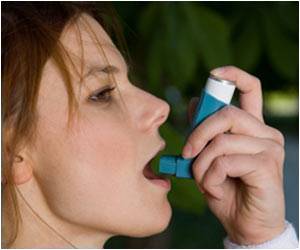
‘Now asthma can be added to the long list of other medical conditions like diabetes, high blood pressure etc which can cause men to suffer from erectile dysfunction or impotence.’
Tweet it Now
While there could be a genetic component to this disease, there could also be the other factors like It is important to note that in youth asthma is very intimately related to obesity. While all asthmatics may not be obese, it is almost true that all obese will develop asthma sometime in their life. Several studies have indicated that while increase in weight has led to the development of the pulmonary disease in youth, the decrease in weight has also led to improvement in the course of the illness. Obesity is a singularly responsible factor in reducing the functions of the pulmonary output, affects the lung volume and also reduces the diameter of the pulmonary airways. Pulmonologists are known to have included a weight control program in obese asthmatics. The other side-developments in obese asthmatics is obstructive sleep apnea. Each disorder is intricately associated with the other and therefore, makes each other worse. A study has found evidence that obesity promotes the development of sleep apnea. Patients with asthma were also more likely to develop obstructive sleep apnea because excessive daytime sleepiness is a factor which contributes to sleep apnea.
Studies also reveal that there is a 72 percent chances that an obese asthmatic patient will develop sleep apnea. The increased prevalence of erectile dysfunction (ED) has been reported in patients with chronic obstructive pulmonary disease, and sustained systemic inflammation seems to play a central role in this linkage. Asthma is also a chronic inflammatory airway disorder, eliciting a low-grade systemic inflammation. Men suffering from asthma, according to a study published in The Journal of Sexual Medicine may have risk factor for impotence in men.
The study which was carried out in Taipei, Taiwan was done on 3466 men aged between 18 to 55 years. The study concluded that asthma could cause erectile dysfunction in men and the risk increased in direct proportion to the severity of asthma. So now asthma can be added to the long list of other medical conditions like diabetes, high blood pressure etc which can cause men to suffer from erectile dysfunction or impotence. This is an important development because of the high number of people who suffer from asthma in India, especially worrying is the rise of asthma cases in the major metropolitan cities like New Delhi, Mumbai and Kolkata primarily due to the increase in vehicular and industrial pollution.
Though it's still unknown whether the treatment of asthma will reduce the risk of patients from developing erectile dysfunction, it would be prudent for these patients to treat their asthmatic condition as soon as possible. Sleep disorders are also the most identified reason for a disorder known as Obstructive Sleep Apnea (OSA). The simplest theory behind OSA is obstruction of the airflow in the upper airways during sleep leading to a low oxygen state in the body. This causes various hormonal and biochemical changes; as a result there is frequent awakening during night and stress on various organs of the body.
Advertisement
It commonly coexists and worsens high blood pressure, diabetes, congestive heart failure, brain strokes and kidney failure. It can also result in erectile dysfunction, depression, occupational and road traffic accidents and sudden unexplained deaths. Recent research has shown that it is becoming increasingly common in patients with Bronchial Asthma. Such patients keep experiencing increased symptoms and go on stepping up their treatment not realizing that there was an underlying sleep disorder which needs to be treated.
Advertisement















